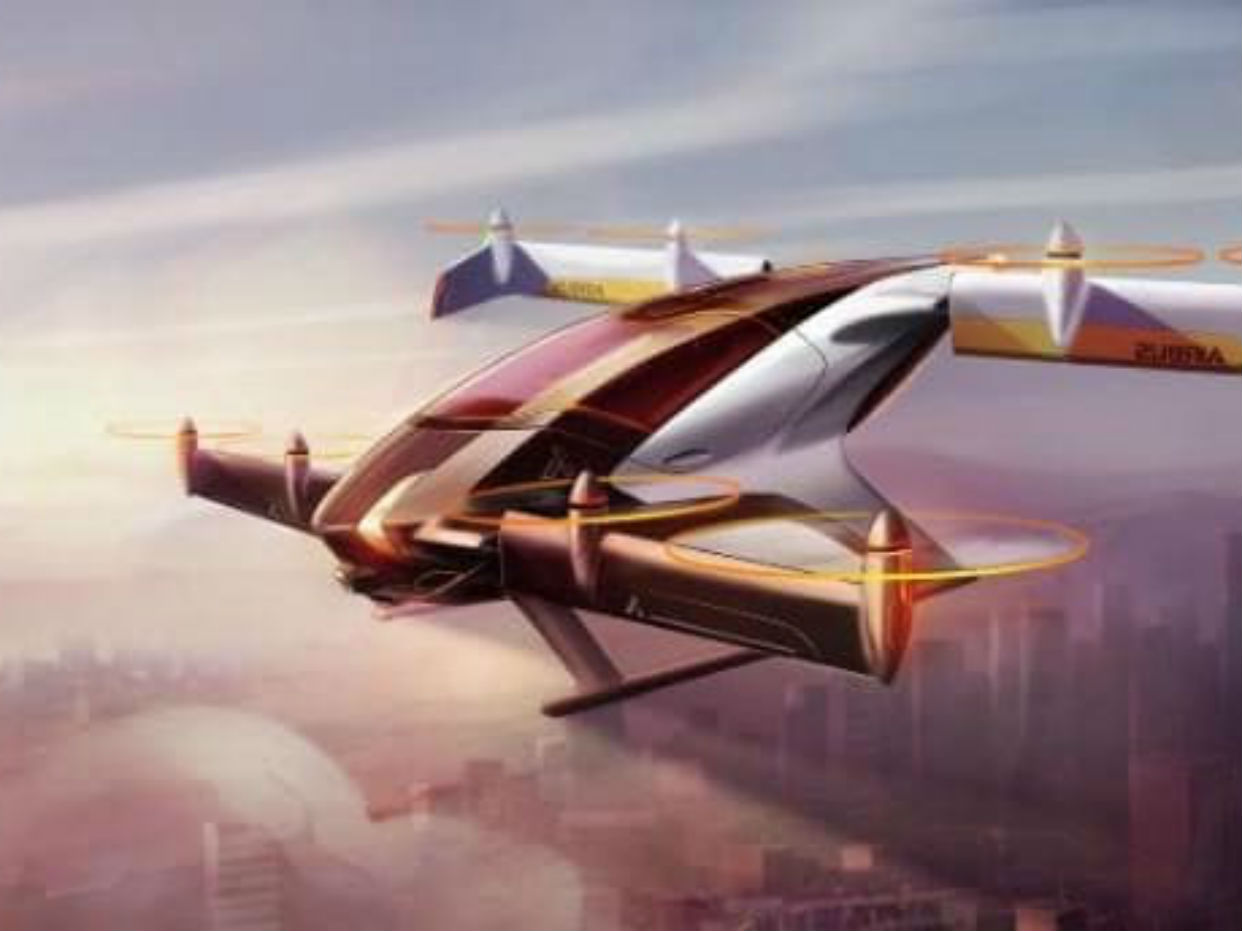Airbus to test flying cars by end of year
Passenger-carrying prototype will take to skies in attempt to end congestion on roads

A free daily email with the biggest news stories of the day – and the best features from TheWeek.com
You are now subscribed
Your newsletter sign-up was successful
Flying cars could soon become a reality after one of the world's biggest aerospace companies announced plans to test a prototype by the end of this year.
Speaking at a technology conference in Germany, Airbus chief executive Tom Enders said the company is working on "vertical take-off and landing" (VTOL) technology that would allow vehicles to pick up passengers in busy urban areas.
He said: "One hundred years ago, urban transport went underground; now we have the technological wherewithal to go above ground."
The Week
Escape your echo chamber. Get the facts behind the news, plus analysis from multiple perspectives.

Sign up for The Week's Free Newsletters
From our morning news briefing to a weekly Good News Newsletter, get the best of The Week delivered directly to your inbox.
From our morning news briefing to a weekly Good News Newsletter, get the best of The Week delivered directly to your inbox.
Airbus has been investigating ideas such as a helicopter-style vehicle able to carry multiple riders, who book using an app in a manner similar to car-sharing schemes. Enders said it expects to put such vehicles into production by 2021 as part of its Urban Air Mobility division.
Although flying cars have been a staple of science fiction for decades, "investment in the concept is finally emerging", says the Daily Telegraph, adding it could be "a big step towards easing congestion on urban roads".
Google founder Larry Page has invested millions in two flying car start-ups, while Chinese company E-Hang has a prototype design. Ride-sharing company Uber is also researching VTOL, while companies such as Amazon are working on delivery drones.
A free daily email with the biggest news stories of the day – and the best features from TheWeek.com
-
 The best music tours to book in 2026
The best music tours to book in 2026The Week Recommends Must-see live shows to catch this year from Lily Allen to Florence + The Machine
-
 Gisèle Pelicot’s ‘extraordinarily courageous’ memoir is a ‘compelling’ read
Gisèle Pelicot’s ‘extraordinarily courageous’ memoir is a ‘compelling’ readIn the Spotlight A Hymn to Life is a ‘riveting’ account of Pelicot’s ordeal and a ‘rousing feminist manifesto’
-
 The EU’s war on fast fashion
The EU’s war on fast fashionIn the Spotlight Bloc launches investigation into Shein over sale of weapons and ‘childlike’ sex dolls, alongside efforts to tax e-commerce giants and combat textile waste
-
 Will AI kill the smartphone?
Will AI kill the smartphone?In The Spotlight OpenAI and Meta want to unseat the ‘Lennon and McCartney’ of the gadget era
-
 Has Google burst the Nvidia bubble?
Has Google burst the Nvidia bubble?Today’s Big Question The world’s most valuable company faces a challenge from Google, as companies eye up ‘more specialised’ and ‘less power-hungry’ alternatives
-
 How the online world relies on AWS cloud servers
How the online world relies on AWS cloud serversThe Explainer Chaos caused by Monday’s online outage shows that ‘when AWS sneezes, half the internet catches the flu’
-
 Is the UK government getting too close to Big Tech?
Is the UK government getting too close to Big Tech?Today’s Big Question US-UK tech pact, supported by Nvidia and OpenAI, is part of Silicon Valley drive to ‘lock in’ American AI with US allies
-
 Google: A monopoly past its prime?
Google: A monopoly past its prime?Feature Google’s antitrust case ends with a slap on the wrist as courts struggle to keep up with the tech industry’s rapid changes
-
 South Korea's divide over allowing Google Maps
South Korea's divide over allowing Google MapsTalking Points The country is one of few modern democracies where the app doesn't work
-
 Google avoids the worst in antitrust ruling
Google avoids the worst in antitrust rulingSpeed Read A federal judge rejected the government's request to break up Google
-
 Is AI killing the internet?
Is AI killing the internet?Talking Point AI-powered browsers and search engines are threatening the death of the open web